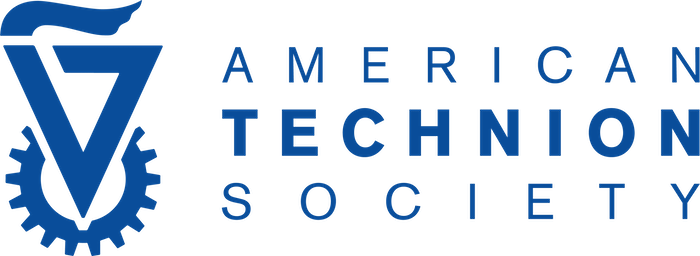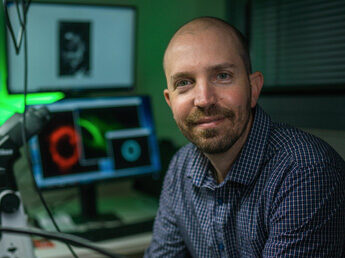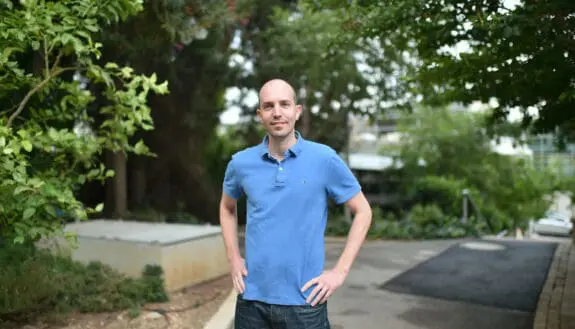Dr. Shechtman is a Faculty Scholar in the Zuckerman STEM Leadership Program which supports future generations of leaders in science, technology, engineering, and math in the United States and Israel and, over time, fosters greater collaboration between the world’s most advanced scientific research centers.
To learn more about Yoav Shechtman’s cutting-edge research, check out his in-depth Q&A here.
Prof. Shechtman and his group focus on the development of novel microscopy tools and their applications to biological questions on the nanoscale. This includes efforts that span topics such as optical fabrication and design, deep learning, and molecular biology.
Their latest advance, DBlink, published in Nature Methods in 2023, constitutes a major leap in biologists’ ability to study living cells, which could enable new discoveries by improving the temporal resolution of super-resolution microsopy called single-molecule localization microscopy (SMLM).
SMLM is an advanced technique used in biology to visualize extremely small structures within cells with exceptional detail. However, it typically requires a significant amount of time to create a highly detailed image, making it challenging to study rapidly changing processes within cells. Prof. Shechtman and his Ph.D. student Alon Saguy developed DBlink, a sophisticated method that can quickly generate detailed videos of dynamic cellular events. To achieve this, they employed deep learning technology, marking a significant advancement in the study of fast-moving components within cells, such as filaments and mitochondria.
Prof. Shechtman grew up in Haifa and served in the Artillery Corps of the Israel Defense Forces from 1998 to 2001. A Technion alumnus, he earned his bachelor’s degree in electrical engineering and physics, and his doctorate in the topic of signal processing in optics. From 2013 to 2016, he conducted post-doctoral studies in chemistry at Stanford University, focusing on super-resolution microscopy. Outside of academia, he worked as an electro-optics engineer at Elbit Systems in Haifa from 2007 to 2008, and in student positions in both Applied Materials and Intel.
Prof. Shechtman has taken on administrative roles at the Technion including vice dean for undergraduate studies in biomedical engineering, work within the “Leaders in Campus” program, and participation in the Technion Faculty Ambassador Program. The program prepares faculty to better understand the Technion mission for the purpose of giving presentations and speaking to supporters in the U.S. and at other Technion societies.
Prof. Shechtman is an associate editor for Biophysical Reports and has served as an editor for other journals in the field of optics. He also has received numerous awards including most recently the Harrington Faculty Fellowship from the University of Texas (2023), the Krill Prize for Excellence in Scientific Research, and the Daniel Shiran Memorial Research Prize (2021), and the International Union for Pure and Applied Biophysics (IUPAB) Young Investigator Prize and Medal (2020).





